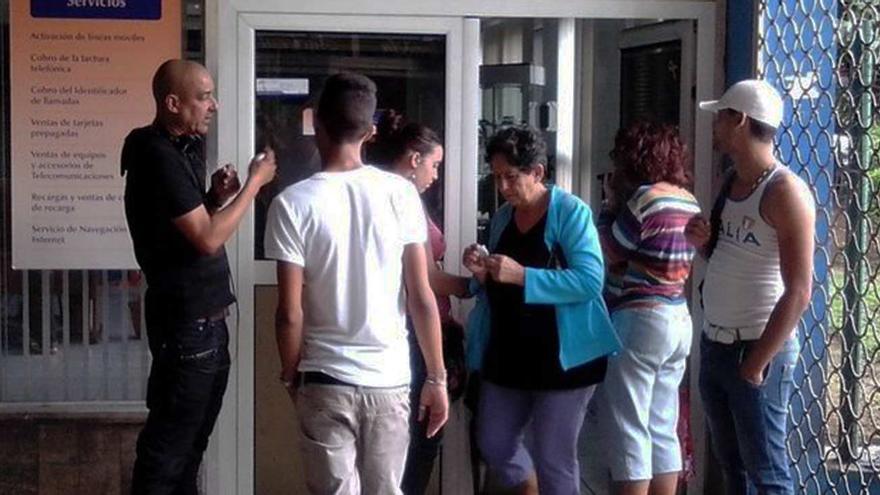
![]() 14ymedio, Havana, 19 August 2021 — The Cuban Telecommunications Company (Etecsa) announced this Thursday a rate cut and launched new mobile web browsing packages, an action that reflects the regime’s concern about Washington’s movements to bring free internet access to Cuba.
14ymedio, Havana, 19 August 2021 — The Cuban Telecommunications Company (Etecsa) announced this Thursday a rate cut and launched new mobile web browsing packages, an action that reflects the regime’s concern about Washington’s movements to bring free internet access to Cuba.
In this context, Etecsa has announced some cosmetic changes. With the legend: “+MB X Less price” they published on their networks the renewal of their 14 GB LTE package that previously cost 1,125 Cuban pesos (CUP) and which will now offer 16 GB for 950 CUP. The changes, which took effect this Thursday, are also reflected in the combos that include web browsing, phone calls and SMS (texting).
The Basic Plan will cost 125 CUP, and will now include 800 MB, 20 minutes of phone calls and 20 SMS; the Medium Plan will cost 250 CUP for 2 GB, 30 minutes of phone calls and 40 SMS, and the Extra Plan 500 CUP for 4.5 GB, 75 minutes and 80 SMS.
The new packages come at a time when customers have been forcefully demanding a flat rate, so Etecsa is far from meeting the demands of its users. Until now, this package is offered only to private workers, and at still very high prices.
The discounts now announced are still very far from the pockets of people who receive the monthly minimum wage, which is 2,100 Cuban pesos, although there are offers of combined packages. As of August 1 there have been adjustments in the costs of SMS within Cuba, set at 1 peso, and an hour of international navigation hour costs 12.50 for customers with permanent accounts.
It is worth noting that the Cubans are losing interest in SMS as it has been the target of Government controls, surveillance and censorship of text messages where several terms and words have been blocked from being sent. As a result, Cubans are using SMS less and preferring to take refuge in safer services such as WhatsApp, Telegram and Signal.
The Cuban government is trying to avoid Washington’s initiative with all the weapons at its disposal. And proof of this is that the Cuban authorities have denounced the initiative to the International Telecommunications Union (ITU) for considering it “a frank violation of sovereignty and national security,” as revealed this Tuesday on the State Roundtable television program, by the vice minister of Communications Wilfredo González.
“What the United States wants is to provide a parallel internet to our country (…), and we are not really going to allow such interference, because it would be violating not only our Constitution, but also the very preamble of the Constitution of the International Union of Telecommunications (ITU),” he said.
Cubans were first able to use the internet on mobile devises as of December 2018. The island was the last country in the region to allow its citizens to surf the internet through their cell phones.
At the end of 2018, President Miguel Díaz-Canel allowed the sale of the first navigation plans including data. Cubans were able to buy their first cell lines in 2008, after the reforms promoted by former president Raúl Castro.
____________
COLLABORATE WITH OUR WORK: The 14ymedio team is committed to practicing serious journalism that reflects Cuba’s reality in all its depth. Thank you for joining us on this long journey. We invite you to continue supporting us by becoming a member of 14ymedio now. Together we can continue transforming journalism in Cuba.
